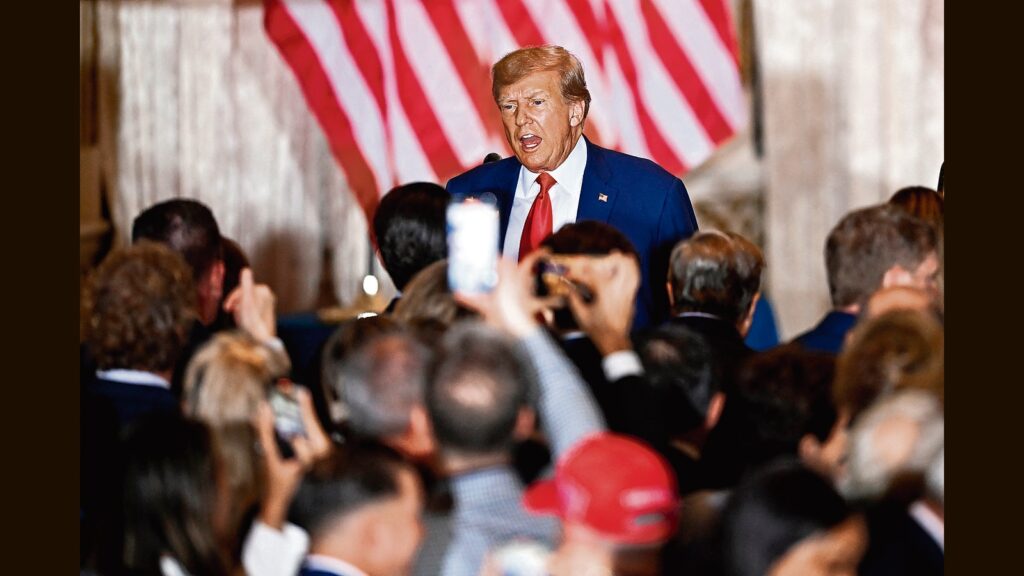The unprecedented arraignment of former United States President Donald Trump – marking the first time a former commander-in-chief appeared in court as a criminal defendant – turned out to be as much of a political spectacle as a judicial one. Mr Trump pleaded not guilty to 34 felony charges in connection to hush money payments his team allegedly made to adult film actress Stephanie Clifford, also known as Stormy Daniels, in exchange for her silence about alleged sexual encounters between the two in 2006 and 2007. The payments were allegedly made in the run-up to the 2016 presidential election. Trump was charged with falsifying business records — which, in itself, would constitute a misdemeanour — and doing so to cover another crime of violating campaign finance laws, which constitutes a felony.
For any other politician, this would represent a grave crisis. But the maverick Mr Trump has attempted to turn this indictment into a rallying cry, and even appears to be enjoying some measure of success in this. His poll numbers are up, and money for a possible 2024 presidential run is pouring in; media reports suggest that a significant section of the Republican base believes the charges are cooked up, just as it believes the 2020 presidential election results were doctored. While the next presidential elections are some distance away, the trial – which may not begin before the 2024 campaign heats up – may end up boosting his stature over other Republican rivals, though what impact it will have on suburban and swing voters is difficult to fathom. The sharply divergent views on the trial also represents a fundamental rupture in American society, where facts and reality are themselves the subject of political debate. The weaponisation and politicisation of institutions, and the stoking of populist and nativist sentiments can create such dystopian realities quickly. Other countries should take note.

